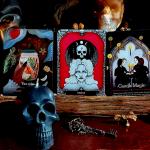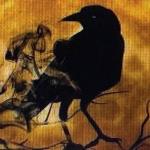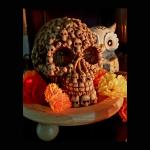“You will be ashamed because of the sacred oaks in which you have delighted;
you shall blush because of the gardens that you have chosen.”
— Isaiah 1:29
In a previous post, I wrote about “Being Embarrassed by Paganism”. I’ve been surprised at the responses. While some people took it as an attempt to perpetuate the “pagan hierarchy”, a surprising percentage expressed sympathy. Among the commenters were Humanistic/naturalistic Pagans, polytheists and Recons, Neopagans and witches.
Drew Jacob responded twice in “Why More People Aren’t Pagan” and “An Open Letter to John Halstead”. In the latter instance, he asks whether we share enough common ground to claim a common spiritual practice:
“We have many beliefs in common. Above all, we revel in the world as-is. The world is majestic and beautiful yet uncaring and destructive. It is at once the source of every joy and every misery we will ever experience. To love the joys and suffer the miseries is one thing, but to savor the joy and race the misery, loving the whole in honor of its perfectness, that is sacred awe. I believe we share this sacred awe.
“We also share a certain deism. I hear you talk about gods; I do the same. It’s human to call out to these gods. They wear faces for us. But we don’t expect deities to change the face of the world. They are our silent tutors, we carry them in our blood. ‘Revere the gods but do not count on their help.'”
Drew also asks what we should call this common spirituality. He, for one, believes that “Pagan” isn’t the right word anymore.
Dave responded to Drew’s post with this beautiful affirmation, which for me defines what Paganism is all about:
I salute the moon whenever I see him, like a lover being recognized with an airy kiss. He shines down brightly, like hope from heaven.
I lie out beneath a vast blanket of stars and feel grateful to have ever been born. Being alive feels so good it hurts.
I pour libations – effervescent, sanguine, and enthusiastic. I set apart who and what I love and remember them forever.
I greet the dead throughout the day and hold close the living always. I revel in the bonds of camaraderie.
The gods and spirits watch me, some curious, others playful, all loving in their own ways. All stupefyingly beautiful.
I run and sing, laugh and dance, make music and art, and fuck like my life depends on it – it does. Love makes the heart sing.
I don’t have a church, or an dogma, or a stately forbearance or respectability. I’m just one man who loves to be alive.
I don’t want to be dead, but I wouldn’t mind it – I don’t want to live forever. I just want to live right now, for as long as that lasts.
I guess that makes me human. So if people ask what religion is he, tell them that my religion is life well lived – through love and ecstatic joy.
Dáire Hobbs responded with a sympathetic post from a Recon perspective entitled “Embarrassed to be Pagan”. The difference between Dáire’s phrasing and mine (“embarrassed of Paganism” vs. “embarrassed to be Pagan”) reflects our respective relationships to the word “Pagan”, a label which I have not abandoned. Dáire cited another interesting post of his about “The Biggest Difference Between Neopagans and Recons”, in which he argues that NeoPaganism and Buddhism are not religions, because they do not worship gods (“real, individual beings”). Instead, NeoPagans “honor ourselves, the Earth and each other”. That’s how I understand NeoPaganism, too. (See B.T. Newberg’s four-part series on the “Three Transcendents”: Nature, Community, and Mind.) But, while Dáire is embarrassed by this, I see it as NeoPaganism’s greatest strength.
Dáire also mentions Brad Hicks’ LiveJournal post, “Not That Kind of Pagan”, which is an entertaining rant against my kind of Paganism:
“It’s also fundamental to Neopaganism, at least where I live and as I see it in my Neopagan friends, that you don’t have to believe any of that to be literally true. Some large percentage, probably approaching half, are for all practical purposes secular humanist agnostics or atheists to whom the god(s) and goddess(es) of Neo paganismare merely convenient spiritual or artistic symbols. In fact, if you count in the further large percentage of Neopagans who believe that The God and The Goddess exist because they’re projections of our own human collective spirit, collective unconscious, and that what we’re really worshipping are things that we made up ourselves? Then the percentage of Neopagans who believe that the gods aren’t ‘really real’ probably approaches the high 90% range. And they’re okay with that.”
Valentina the Witch responded to my post with “Why You Don’t Have to Be Ashamed of Paganism.” Valentina suggests that I may be on my way out of the Pagan community because I have violated what I have called the First Commandment of NeoPaganism: “Thou shalt not judge.” I didn’t find that injuction helpful when I was Christian, and I don’t find it helpful in Paganism either. As I said in one of my responses to Valentina:
“I think there is a role for constructive criticism, and I think sometimes the love-and-let-live attitude can be as problematic as destructive criticism. I appreciate that there is a difference between constructive criticism and ‘bitching’. In the blogosphere, I think the difference is that constructive criticism is characterized by openness and vulnerability and backed up by personal experience. I strive to be an example of the former, but I don’t always succeed.”
Certainly, it’s no fun being on the receiving end of someone else’s judgment (I get it from Recons like Dáire). But, as I wrote previously:
If you want to avoid orthodoxy, then we need to have more discussion, not less. And some of that discussion needs to be (constructively) critical. Or else we become vulnerable groupthink. Sometimes it is only the best of our friends that force us to ask the hardest of questions about ourselves. […] I wonder if the ‘tolerance’ being advocated is not, in some cases, an excuse for insularism.”
While I disagree with the polytheist critique of my kind of Paganism, it has driven me to consider the way in which we experience deity as “other” and has led me to a more complex and nuanced understanding of divinity. If I had not been challenged by those I disagree with, I might have missed this opportunity for growth.
At her blog, Nathara wrote about her own “Pagan Embarrassment” at some, but not all, of the same things I complain about, and wonders about her own relation to Paganism. And she wonders: “Are the public Pagan rituals playing a political game, dressing up to be as harmless as possible? Catering to the lowest common denominator?”
In her response, Alison Leigh Lilly discussed embarrassment as “an invitation to growth”. I found Alison’s post the most challenging and I attempted to respond to it in my previous post: Embarrassment and the twin threats to Paganism: Shallowness of the mind and of the heart.
Mention was also made of this discussion by the always awesome Jason Mankey and as part of this week’s Mysteria Misc. Maxima. And B.T. Newberg published a poll asking which label the readers at Humanistic Paganism identify most with (a few of which do not use the word “Pagan”).
Finally, John Becket offered his advice “To My Nontheistic Pagan Friends”: “Let’s all find the right combination of pride and humility as we explore the great mysteries of Life.” John reminds us that Paganism is a young religion. Alison said something similar in her post when she analogized Paganism to adolescence. I agree patience is necessary when when dealing when young religions as it is when dealing with teenagers, but at the same time, both kinds of adolescence benefit from structure — tolerance is helpful, but at point it can be an obstacle to growth. In the end, John calls us to remember what we love about Paganism:
“Remember that something called you to Paganism – otherwise you’d be an atheist. Perhaps that was a love of Nature, or an interest in ancient literature, or as with one non-theistic Pagan I know, a love of ritual. Perhaps you believe that developing reverence for the Earth is the only thing that will save us as a species. Whatever your reason for being in this big tent we call Paganism, you do have a reason, and I’m glad you’re here.”
I very much appreciated this. And it prompted me to go back and read my post about why I love Paganism.
I want to thank everyone who commented or responded to my original post. As I indicated in some of the comments, it was not easy to write and I realize that it made me come off as elitist and disengaged. The responses have been thought-provoking and challenging for me, and with time I hope to be able to integrate their insights into my own understanding of my relationship to Paganism.















